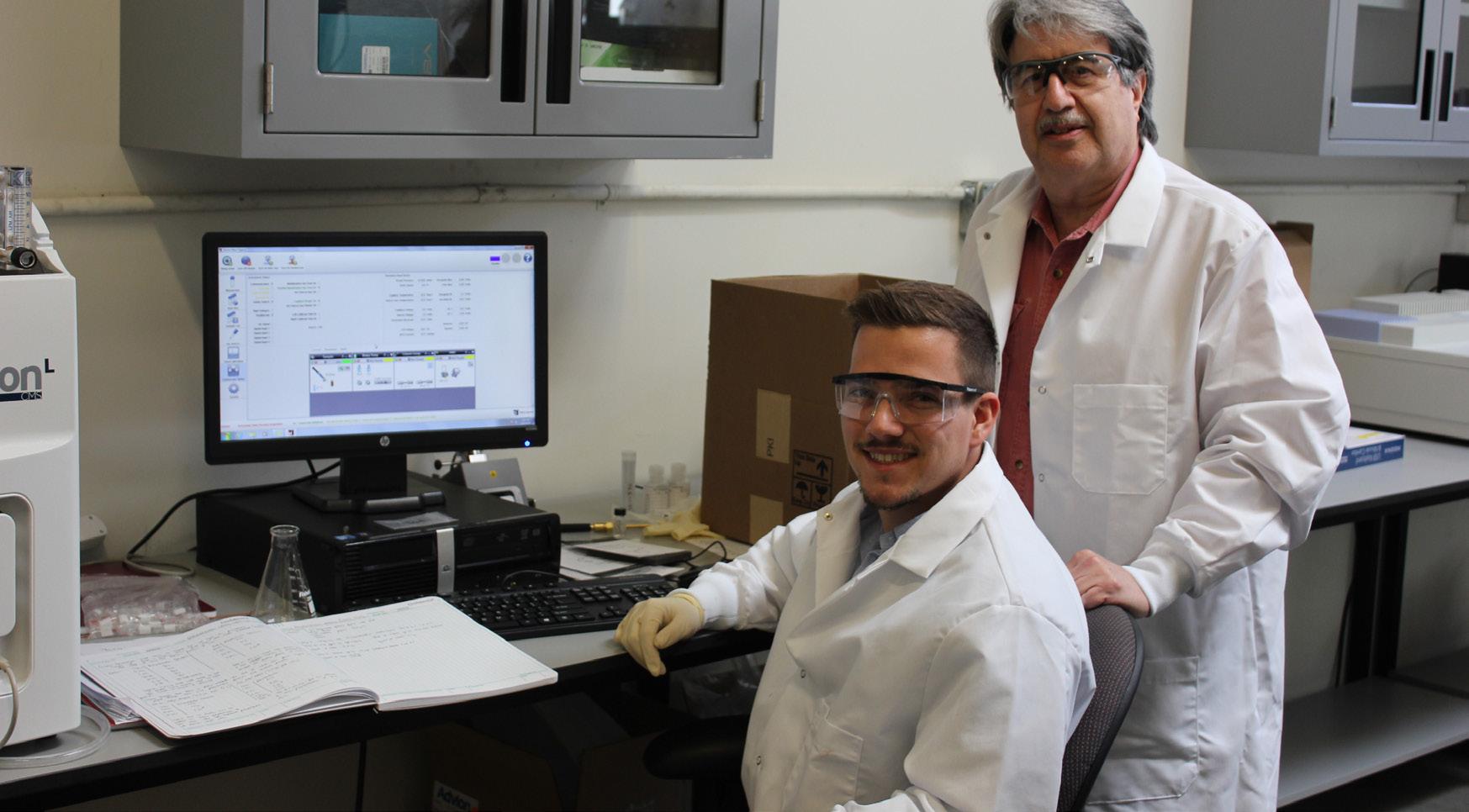
3 minute read
Internship versus Job
WHAT IS NOT CONSIDERED AN INTERNSHIP? • Part-time job with tasks unrelated to career experience and growth with minimal opportunities to learn about student’s career interests • Primarily clerical or unskilled labor • A vague, undefined, unsupervised experience with no training
INTERNSHIP VS. JOB
Advertisement
In some cases it may be worth asking if an internship is the best route for your company/organization. If you do not have an appropriate supervisor or time to train an intern you may need to ask yourself if your opportunity an internship or more appropriate as a job? Here are some tips to help determine which opportunity type is the best fit for your goals.
INTERNSHIP POSITION VS. PART- OR FULL-TIME JOB
Internship Job
Primarily for training purposes Primarily serves and supports a business need
Has specific learning objectives
Is not essential to business operations
Offers pre-professional tasks and training for current college students
For current college students
College level experience needed only Is an extension of academic experience and connected to curriculum
Skills are developed in professional environment Intern shadows staff & business activities
Entry level skills developed are transferable to other workplaces
Intern is closely mentored by staff with expertise in internship area Similar to a teacher-student relationship
Feedback is given to facilitate learning process
Intern meets professionals and begins building a professional network
Short term with a fixed start and end date
Future employment is not promised More than 20% of responsibilities are administrative
Is essential to business operations Does work that helps generate revenue for the business
Employee brings expertise & professional experience
Requires (or prefers) college degree and years of experience
Is expected to hit the ground running
May also manage projects, staff, clients May assist with routine, menial, administrative, production work or as staff for peak times or events
Intermediate to advanced level skills developed
Employee has enough expertise to manage responsibilities and needs minimal guidance Works independently and/or as a part of a team
May be full time, part time, freelance, contract, as needed by employer
ALL INTERNSHIPS SHOULD
A
Include a signed Student Selected Placement Agreement with a senior representative of the partner agency or corporation and the University procurement officer as designated signature authority. In this agreement, it must be stated that the university assumes no risk or liability and that the sponsoring agency/corporation assumes full responsibility for the liability of the intern, affirming that they have requisite insurance to cover any potential harm to the intern, and include basic information such as location, contact person, and organization description.
Include a learning agreement signed by the student, sponsoring faculty, and placement supervisor listing the learning objectives and goals of the internship and the duties and responsibilities of each party, notifying the student of the assignment of liability, terms and conditions and the listing of relevant agency policies, and the date the internship begins. This includes mention of whether the intern is paid and conditions for receiving academic credit.
This requirement is pursuant to the CSUCI Executive Order 849, page 6: “Student placement agreements must be in writing and shall specify minimum insurance requirements applicable to the contracting parties and appropriate hold harmless provisions based upon the needs of the contracting parties. The following hold harmless provisions may be used as a minimum: Hold Harmless Provision: CI shall be responsible for damages caused by the negligence of its officers, employees and agents. Trustees shall be responsible for the damages caused by the negligence of its officers, employee and agents. The intent of this paragraph is to impose responsibility on each part for the negligence of its officer’s employees and agents.”
B
CRITERIA FOR AN EXPERIENCE TO BE DEFINED AS AN INTERNSHIP
To ensure that an experience—whether it is a traditional internship, or one conducted remotely or virtually—is educational, and thus eligible to be considered a legitimate internship, all the following criteria must be met: 1 The experience must be an extension of the classroom—a learning experience that provides for applying the knowledge gained in the classroom. It must not be simply to advance the operations of the employer or be the work that a regular employee would routinely perform. 2 The skills or knowledge learned must be transferable to other employment settings. 3 The experience has a defined beginning and end, and a job description with desired qualifications. 4 There are clearly defined learning objectives/goals related to the professional goals of the student’s academic course work. 5 There is supervision by a professional with expertise and educational and/or professional background in the field of the experience. 6 There is routine feedback by the experienced supervisor. 7 There are resources, equipment, and facilities provided by the host employer that support learning objectives/goals. (NACE, 2019)







